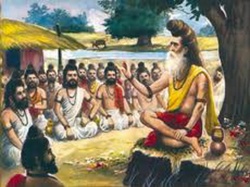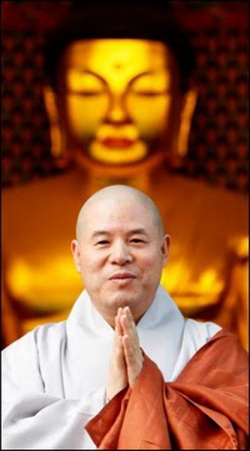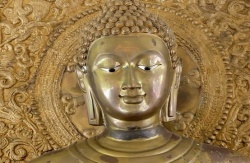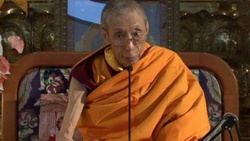Attadīpa suttaṃ: An Island to Self
Saɱyutta Nikāya:
III. Khandhā Vagga:
22: Khandhāsaɱyutta
Sutta 43
Attadīpa suttaṃ
An Island to Self[1]
Translated by F. L. Woodward
Edited by Mrs. Rhys Davids
Copyright The Pali Text Society
[1-2] Thus have I heard:—
The Exalted One was staying at Sāvatthī.
Then (the Exalted One) said:—
[3] 'Do ye abide, brethren,
islands unto yourselves,
refuges unto yourselves:
taking refuge in none other;
islanded by the Norm,
taking refuge in the Norm,
seeking refuge in none other.
[4] By them who are islands unto themselves, brethren,
who are a refuge unto themselves,
who take refuge in none other,
who are islanded by the Norm,
take refuge in the Norm,
seek refuge in none other
— by them the very source of things[2]
is to be searched for: thus
— "What is the source of sorrow and grief,
of woe, lamentation and despair?
What is their origin?"
[5] What then, brethren,
is the source,
the origin of these?
[6] Herein, brethren,
the untaught many-folk,
who discern not those that are Ariyans,
who are unskilled in the Ariyan doctrine,
untrained in the Ariyan doctrine,
who discern not those who are worthy ones,
who are unskilled in the worthy doctrine,
untrained in the worthy doctrine,
— these regard the body as the self,
the self as having body,
body as being in the self,
the self as being in the body.
But [the well-taught Ariyan disciple)[3]
beholding, brethren,
the impermanence of body,
its instability,
its coming to an end,
its ceasing, says:
"Formerly also,
as well as now,
all bodies were impermanent and suffering,
unstable in nature."
Thus seeing it as it really is,
by perfect insight,
he puts away from him
all sorrow and grief,
woe, lamentation and despair;
nor is he troubled at [38] their putting away,
but untroubled lives at ease
and so living at ease
that brother is called
"one who is rid of all that."[4]
[12] Beholding, brethren,
the impermanence of feeling,
its instability,
its coming to an end,
its ceasing,
he says:
"Formerly also,
as well as now,
all feeling was impermanent and suffering,
unstable in its nature."
Thus seeing it as it really is,
by perfect insight,
he puts away from him
all sorrow and grief,
woe, lamentation and despair:
nor is he troubled at their putting away,
but untroubled lives at ease,
and so living at ease
this brother is called:
"One who is rid of all that."
So also with regard to perception,
the activities
and consciousness.'
Footnotes
- ↑ Lit., 'self-islanded'; usually rendered 'lamps (dīpa) unto yourselves.' Comy., Attadipa = tāṇaŋ, leṇaŋ, gati, parāyanaŋ = Atta-saraṇa. — i.e., 'shelter, cave of refuge, resort, goal, refuge. Cf. Dialog. ii, 108.
- ↑ Yoni yeva upaparikkhitabbo. Yoni[so] is ab origine (cf. Yoniso manasikāro), so 'methodical attention.' Comy.,' kāraṇaŋ ti; upāyena manasikāro. K.S. i, p. 131.
- ↑ The text omits 'the well-taught Ariyan disciple.'
- ↑ Tad-anga-nibbuto = tad'anga-vimutto — i.e., 'cooled down,' freed as to these (attributes) accordingly or respectively. — Cf. Pss. of the Sisters, 447






